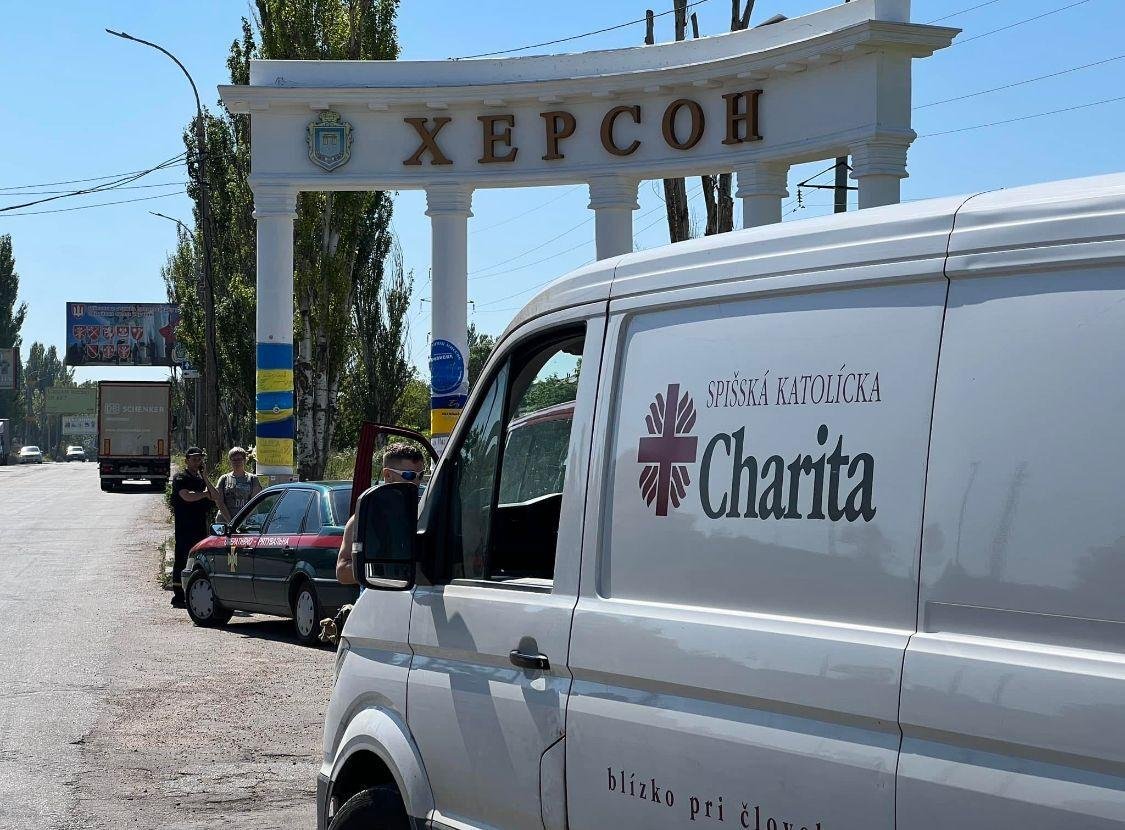What does Prigozhin’s rebellion mean for front-line fighters?
Zeke Lloyd & Michael Braithwaite, Colorado Springs Gazette on July 4, 2023
KOŠICE, Slovakia – As Yevgeny Prigozhin’s troops marched toward Moscow last weekend, Vladimir Putin compared the rebellion to the uprising of 1917. But instead of toppling the Russian government, the Wagner mercenary group changed course. One week later, Russia’s military remains composed and entrenched along the front lines of the war.
Ukrainian journalist and international relations expert Audrey Burazov believed the event to be “the biggest strategic defeat of Russian political history in the last thirty years,” but doesn’t foresee major changes in the war. Instead, he anticipates the battle lines will become “semi-frozen” in the months to come.
And while Wager’s actions demonstrate discord among Russian leaders, they also ignited new anxieties for Ukrainian tacticians. With Belarusian President Alexander Lukashenko mediating an undisclosed agreement between Putin and Prigozhin, some number of those seasoned fighters are being integrated into the Russian army while an unknown number of Wagner forces are now relocating to Russia’s western neighbor.
“I don't like that these guys from Wagner may be transferred to Belarus,” said Buzarov. “Belarus has a border near NATO, near Ukraine, near Kyiv… So it can be very dangerous.”
A previously abandoned area in Belarus, recently cited by Russian media as a potential home for the Wagner soldiers, is roughly 280 miles from Kiev. The war-torn region of Kherson, meanwhile, is separated from Kiev by over 400 miles.
Moreover, the Wagner incident did not provide Ukrainian forces with much opportunity to capitalize in areas like Kerhson, Kharkiv, and Dnipro.
“We saw that Ukraine was, I’d say, rather careful with its reaction,” said Matej Kandrík, a doctoral political science candidate who specializes in security and strategic studies. “I think, even in Ukraine, they were not really sure if it was real or not… My reading would be that they didn’t go down that way because of being careful and not risking too much.”
The situation is further complicated by Russian forces' preparation over the last several months. Entrenching themselves along the front, they have constructed complex fortifications designed to repel much of the advanced weapons systems provided by the West.
Preventing a fast Ukrainian advance, even amidst Wagner’s march on Moscow, gives Russia’s Ministry of Defense time to rework its internal structure and prevent further insubordination.
“The lack of unity in command is a huge problem in Russian forces,” said Kandrík. “The MOD was trying also to fix this problem, not only the political problem of Wagner but really to reach this overlap and get everyone under their umbrella.”
And as a result of this long standing disunity, Russia’s long-term plans for annexation have been largely stagnated. A conflict that some experts initially thought could end in days has dragged on, with Ukraine’s military holding firm against the full might of the Russian force.
Now facing a counteroffensive, it’s unclear what has become of Russian war aims. Some experts believe that a ceasefire might be in Putin’s best interest.
“The thing is that for the Russians now, the strategic goal is to hold on, to hold the territories they have already conquered, and ideally, perhaps, enter peace talks,” said Melichar Hynek, a professor in the department of political science and European studies at the Czech Republic’s Palacký University.
“Putin then would present it, of course, amplified by propaganda to the Russians,” said Hynek. This propaganda, Hynek says, would leverage the regained territory in Donbas and Crimea to frame the war’s conclusion as a Russian victory.
For Ukraine, though, such an agreement would not be so simple.
“[Peace] will be a victory for Putin, but of course, on the other side, Zelensky and the Ukrainians don’t want to hear anything about it. Why should they give up their own territory to an enemy who clearly shows more and more weaknesses?”
But Russia’s vulnerability is hard to quantify. It seems that Prigozhin’s march on Moscow did little, in the short term, to undermine the war effort in Ukraine. While Russia may show signs of deterioration from the inside, the front remains fraught with military activity.
Still, seeds of rebellion can take time to root. Prigozhin demonstrated to the world that Russia is not nearly as united as it claims to be and that Putin’s once-strong grip on his country may finally be relaxing.
“The whole thing brought more questions than answers, especially right now,” said Kandrík. “I wouldn't consider it really as a closed chapter. I mean, the mutiny itself, yes, but the outcomes and all other things it might trigger, that’s for us to see in some time.”
